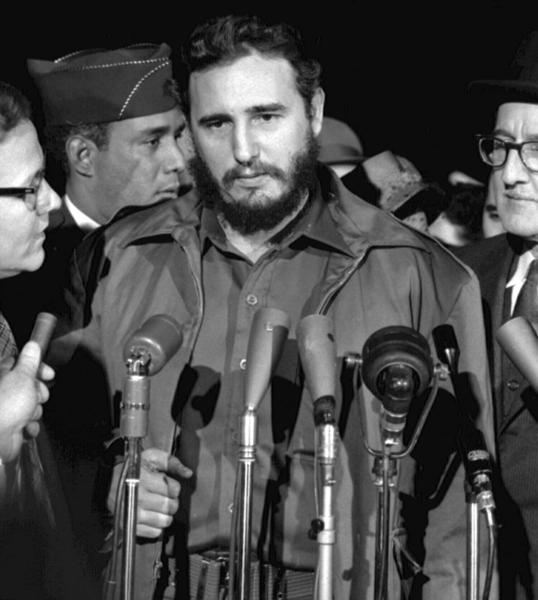After the death of Fidel Castro, a columnist from The Miami Herald questioned San Francisco 49ers quarterback Colin Kaepernick on Castro’s legacy because Kaepernick had previously worn a t-shirt with an image of the late Cuban leader sitting next to Malcolm X. In his response, Kaepernick defended Castro because he provided free education and health care. The problem with Kaepernick’s statements is that it has the tendency, intentional or not, to absolve Castro’s legacy of violating the human rights of the Cuban people. Furthermore, it seems rather hypocritical of Kaepernick to be protesting the national anthem because of the wrongs experienced by African Americans in America, and not even acknowledge the oppression and persecution experienced by Cubans under Castro.
Regardless of location, oppression should always be adamantly opposed. In the case of Cuba, despite providing free education and health care to his people, under Castro’s regime unwavering loyalty to the state superseded rights to the individual.
In 1959, Castro came to power after overthrowing President Fulgencio Batista. Immediately, more than 500 Batista government officials were court-martialed, convicted and shot to death. Castro defended his actions as needed to solidify the revolution. In 1960, Castro founded the Committees for the Defense of the Revolution (CDR), a network of neighborhood watch groups that were used as a tool for the Cuban government to deter political opposition. In providing free education to his people, Castro utilized education as a tool to consolidate the revolution. During and after their education, students were required to support and encourage government policies. They were required to enroll in courses that were not critical of socialism, and children were sent to boarding school to ensure they would be loyal to the revolution.
During his regime, Castro denied his citizens’ basic civil liberties and human rights including freedom of religion, press and assembly. Despite relinquishing power in 2008, Castro’s oppressive legacy persists today in Cuba. For instance, it is still illegal to form different political organizations and to express opinions that deviate from the status quo. Cubans who choose to express opposing political views are harassed, assaulted and imprisoned. According to Human Rights Watch, Cuba uses a variety of tactics to ensure its citizens are conforming to the political status quo, which include house arrests, travel restrictions and criminal prosecutions. It is illegal to have civil rights organizations in Cuba, and no women’s organizations are recognized by the Cuban government.
Cuba might provide free health care to its citizens, but Castro oppressed the people by denying them basic rights. Many Americans have criticized Kaepernick for exercising his First Amendment right to protest the national anthem. If Kaepernick wants to protest the national anthem in light of oppression against African Americans and minorities then, that is his right. However, by the same token Kaepernick should remember that his right to protest is being denied to citizens in Cuba.
Leslie McNamara is a public policy graduate student specializing in health policy. She can be reached at lamcnamar@gmail.com.



